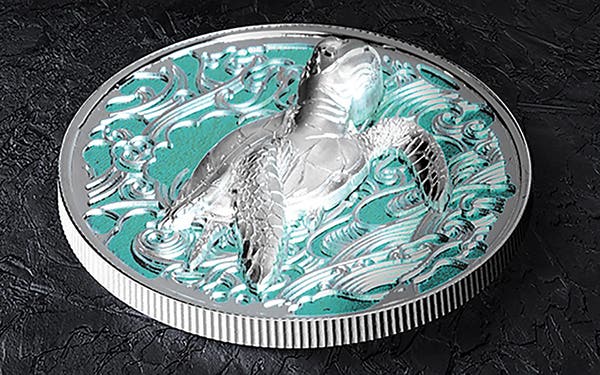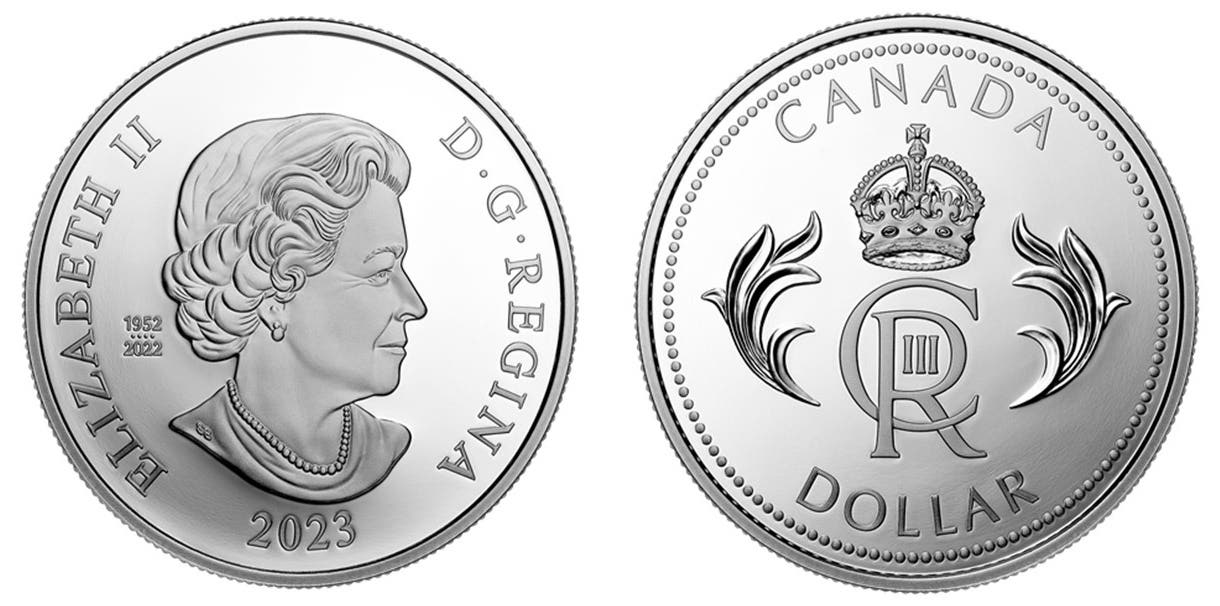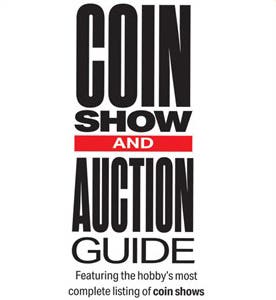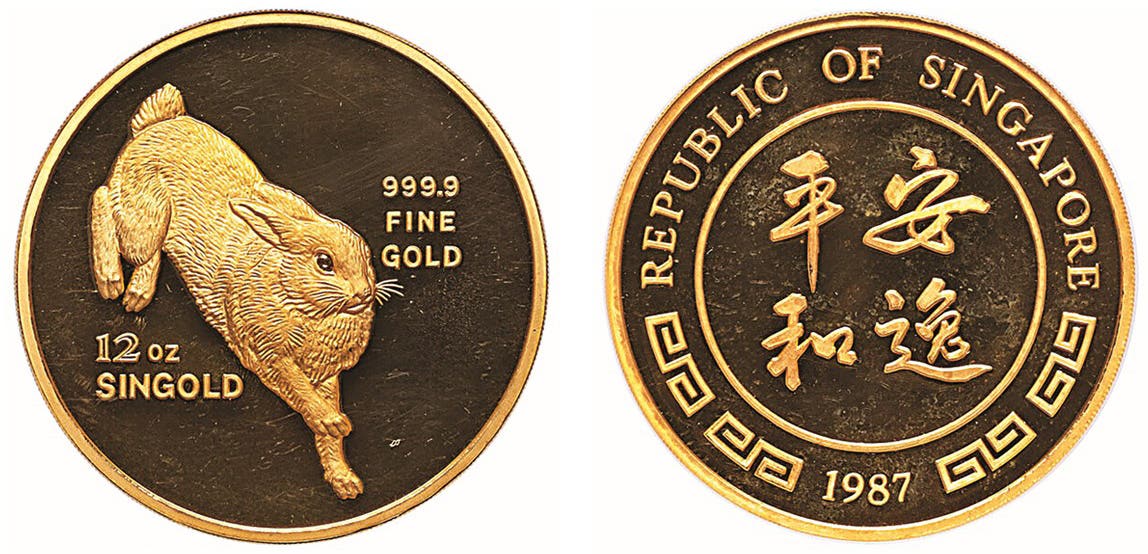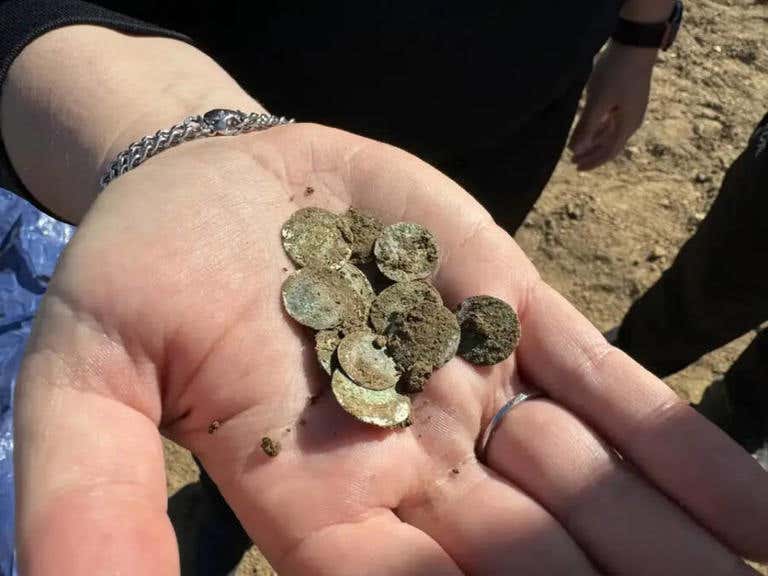Chicago Coin Club Inducts Arlie R. Slabaugh Into Hall of Fame
Arlie R. Slabaugh (April 26, 1925 – Sept. 26, 2007) was appointed Assistant Editor of the Numismatic Scrapbook in April 1954 and moved to the Chicago area from Artie, “among…
Arlie R. Slabaugh (April 26, 1925 – Sept. 26, 2007) was appointed Assistant Editor of the Numismatic Scrapbook in April 1954 and moved to the Chicago area from Artie, “among the West Virginia hills.” The next month, on May 14, he joined the Chicago Coin Club as member No. 619. A frequent exhibitor of wartime currency and unusual numismatic items, he was recognized for one of the best exhibits at the Club’s 1954 annual banquet. At the December 1956 meeting, he read an original poem, “A Christmas Phone Message,” asking Santa to bring all the members of the club the items they wanted. He received the Club’s Literary Award in 1961 and 1965. The club’s highest honor, the Medal of Merit, was presented to him in 1966.
Mr. Slabaugh began collecting as a schoolboy. At 13, he sent 10 cents to a dealer for a banknote and foreign coin, and soon had an interest in numismatics so “serious” that he founded his own magazine, The Hobby Spotlite. It was then just a single page with limited circulation but later a printed, national publication. He joined the ANA at 16, but on Jan. 22, 1942 was stricken with “mastoiditis” and hospitalized for three weeks, leaving him completely deaf. He learned to read lips and continued to speak. At the West Virginia School for the Deaf, he studied journalism and printing, though this scarcely interrupted his writing and publishing. By 1948, he was the first full-time dealer in world paper money in the United States, but was “glad to receive a regular paycheck” from the Numismatic Scrapbook. Here he excelled until lured away by the Franklin Mint in Pennsylvania in 1967 as Director of Numismatic Information, remaining with them until 1985.
His first book, The German Inflation, was 40 pages long and self-published in 1947. It was reprinted from the Numismatic Scrapbook 1945-46. But his most lasting contribution was Confederate States Paper Money, published by Whitman in 1958; an eleventh edition was released in 2008 under a modified title. On other wartime emergency monies, he wrote Encased Postage Stamps, U.S. and Foreign (1967), Japanese Invasion Money (1963, fifth ed. 1977), and Prisoner of War Monies and Medals (1965, second ed. 1969). Other longer works covered U.S. commemorative coins, small size National Bank Notes, and several exonumia categories. Besides these booklets, he contributed scores of articles to the Numismatic Scrapbook, The Numismatist, the TAMS Journal, and Paper Money.
A charter member of the Token and Medal Society, he was an assistant editor of the TAMS Journal and received their Medal of Merit in 1967; he served as President from 1978-1980. The Society of Paper Money Collectors presented him with its Nathan Gold Memorial Award for lifetime achievement in 1963. The Numismatic Literary Guild honored him with their highest award, the Clemy, in 1981. He was voted a Numismatic Ambassador in 1989. And from the ANA, Mr. Slabaugh received a Heath Literary Award in 1948, two B.P. Wright Exhibit Awards in 1965 and 1966, the Medal of Merit in 1991, the Glenn Smedley Memorial Award and a President’s Award, both in 1997, and the Lifetime Achievement Award in 2004.
Although deaf and with limited education, he cheerfully overcame these difficulties and pioneered the study of many exonumia and synographic areas, combining historical and technical accuracy with a matter-of-fact, folksy writing style. His genius was such that, while typesetting on a linotype machine at the Numismatic Scrapbook, he could anticipate what space would remain after the article and compose a short item to fill it before he reached the bottom of the page.
Twelve Hall of Fame inductees have been selected. The remaining two will be announced one a month, November and December, during the Chicago Coin Club’s centennial year, 2019.
The Chicago Coin Club was organized in 1912 as American Numismatic Association Branch No. 1, and reorganized under its present name in 1919. All are invited to join. To become a member you must attend a meeting and submit an application along with a membership fee of $20 ($10 for Junior membership). A first reading of your application will be held at this meeting, and a second reading at the next monthly meeting, following publication of your name in the club newsletter. (You are not required to be present for the second reading.) Upon membership approval, you will become a member.
The Chicago Coin Club holds monthly meetings in downtown Chicago, plus at major numismatic conventions such as Central States, with a speaker featured at every meeting except the annual auction, held at the November meeting.



